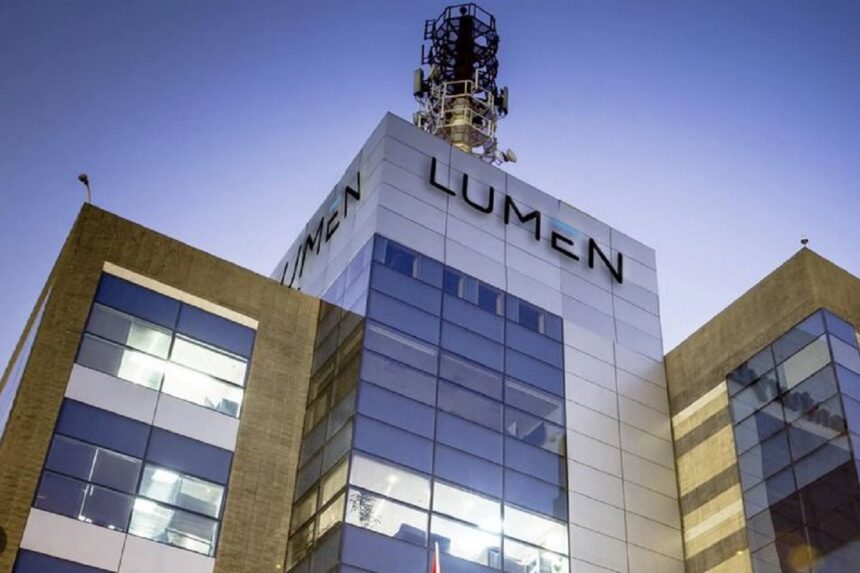Lumen Technologies is evaluating the potential sale of its consumer fiber unit, a move that could generate between $6 billion and $9 billion. The company, which has been restructuring its operations to focus more on high-growth sectors like artificial intelligence (AI), is working with Goldman Sachs to explore this deal, with a joint venture also being considered as an alternative.
Why Is Lumen Considering the Sale?
Lumen Technologies, which serves a range of sectors including telecommunications and cloud services, is looking to bolster its financial position and accelerate its strategic shift toward AI. The sale of the consumer fiber unit could help the company reduce its debt load, which has been a key focus for the firm as it works to streamline operations and pivot toward next-generation technologies. According to sources close to the matter, the decision to explore the sale is part of a broader strategy to focus on areas that promise stronger growth, such as cloud services and AI-powered solutions.
The Financial Motivation Behind the Sale
The potential deal represents a significant opportunity for Lumen to raise capital and strengthen its balance sheet. In recent months, the company has made notable strides in securing partnerships with major cloud providers, including Google Cloud and Amazon Web Services (AWS). These agreements, aimed at enhancing Lumen’s AI capabilities, are seen as pivotal for the company’s future growth.
This focus on AI-driven services has already begun to pay off. In August 2024, Lumen reported securing $5 billion in new business, largely driven by AI sales. By divesting its consumer fiber unit, Lumen can concentrate its resources on these high-margin, fast-growing sectors.
What Does the Consumer Fiber Business Include?
As of the third quarter of 2024, Lumen operates fiber infrastructure across 4.1 million locations. The company’s consumer fiber business offers high-speed internet, TV, and phone services to residential customers, but it has been facing increasing competition from both national and regional broadband providers. The sale of this unit would mark a shift in Lumen’s strategy from residential broadband to more lucrative enterprise-focused services, particularly in areas like AI and cloud computing.
Despite its extensive fiber network, Lumen’s consumer segment has struggled to achieve the same level of profitability as its business services. The sale of the fiber unit would allow the company to reduce its exposure to this competitive market, where margins are thinner, and focus more on areas where it sees better long-term growth prospects.
The Current M&A Landscape in the US Fiber Market
Lumen’s decision to consider selling its consumer fiber business is part of a broader trend in the US telecommunications and fiber market. There have been several high-profile mergers and acquisitions in the industry this year. Notably, Verizon acquired Frontier Communications in a deal valued at $20 billion. Similarly, T-Mobile expanded its fiber footprint by acquiring Lumos and Metronet through separate joint ventures.
Another major acquisition this year was Bell Canada’s purchase of Ziply Fiber for C$7 billion (approximately $5 billion USD). These transactions reflect a growing trend of consolidation in the fiber sector as companies look to expand their networks and reach in a rapidly evolving market.
Lumen’s AI Strategy and the Future of Its Fiber Assets
Lumen’s push into AI-driven cloud services is central to its long-term strategy. By selling off its consumer fiber unit, the company could secure the necessary capital to further invest in AI and cloud infrastructure. These investments are crucial as businesses increasingly look for cloud solutions powered by advanced technologies such as machine learning and artificial intelligence.
In a recent move, Lumen secured separate AI cloud deals with Google Cloud and AWS, underscoring its shift toward becoming a leading player in the cloud and AI sectors. These deals are expected to be a significant part of Lumen’s future growth and will likely play a key role in the company’s next phase of development.
Other Fiber Asset Sales in North America
The trend of divesting fiber assets is not unique to Lumen. Other companies have also been exploring similar moves. Last week, it was reported that Crown Castle is in discussions to sell its fiber assets to TPG, a private equity firm. These kinds of asset sales reflect the evolving nature of the fiber and telecommunications markets, as companies look to streamline operations, reduce debt, and focus on more lucrative, high-growth areas.
Potential Buyers and Market Implications
If Lumen proceeds with the sale of its consumer fiber unit, there is expected to be significant interest from potential buyers, including private equity firms, telecom companies, and other industry players looking to expand their fiber networks. With the growing demand for broadband infrastructure and the increasing importance of high-speed internet in both residential and business settings, the market for fiber assets remains strong.
For Lumen, the decision to sell is not just about shedding a non-core asset but positioning itself as a more agile player in the rapidly changing telecommunications landscape. By divesting this unit, the company can focus on high-demand areas, such as AI-driven cloud services, which are poised for long-term growth.
What’s Next for Lumen?
As Lumen continues to explore its options regarding the sale of its consumer fiber unit, the broader telecom and fiber market will be watching closely. The potential deal could be a significant milestone for the company as it continues to transform its business to meet the demands of a more digital, AI-driven world.
With Lumen’s focus shifting away from residential broadband and toward enterprise-focused solutions, the sale could enable the company to strengthen its position in emerging markets like cloud services and AI. As these sectors continue to expand, Lumen’s strategic pivot could position it well for future success.
FAQ
1. Why is Lumen selling its consumer fiber unit?
Lumen is considering the sale of its consumer fiber unit to reduce its debt and to focus on higher-growth areas like AI and cloud services, which are more profitable and aligned with its long-term strategy.
2. How much could the sale of Lumen’s consumer fiber unit be worth?
The sale is expected to fetch between $6 billion and $9 billion, according to reports.
3. What are Lumen’s recent moves in AI and cloud computing?
Lumen has entered into cloud partnerships with Google Cloud and AWS, aiming to enhance its AI capabilities. This strategy has already helped the company secure significant new business, particularly in AI-driven sales.
4. What other companies are involved in similar fiber asset deals?
Other telecom companies, such as Verizon, T-Mobile, and Bell Canada, have recently acquired fiber assets or pursued similar transactions in the North American market.
5. What could be the impact of the sale on Lumen’s future?
Selling its consumer fiber unit could allow Lumen to reduce its debt and increase investments in AI and cloud infrastructure, helping it stay competitive in these growing markets.



















